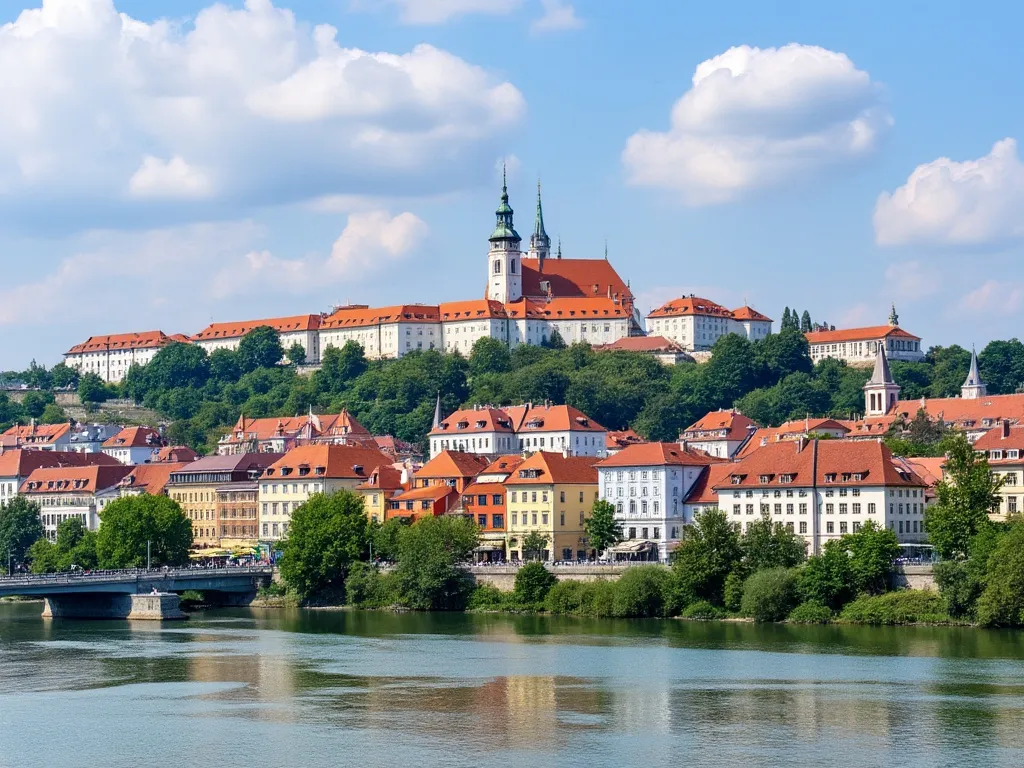
Bratislava, the capital and largest city of Slovakia, is a vibrant metropolis situated along the banks of the Danube River. As a political, cultural, and economic hub, Bratislava plays a crucial role in the country's development and serves as a gateway between Western and Eastern Europe.
Bratislava Information
| Country | 🇸🇰 Slovakia |
| Population | Approximately 430,000 |
| Coordinates | 48°08'N 17°07'E |
| Area | 367.9 km² (142.0 sq mi) |
| Climate | Humid continental |
| Language | Slovak |
| Currency | Euro (€) |
| Time zone | CET (UTC+1), CEST (UTC+2) |
| Proximity to other major cities | Vienna (55 km), Budapest (200 km), Prague (330 km) |
Historical Background of Bratislava
Bratislava's history dates back to the Neolithic period, with evidence of Celtic and Roman settlements. The city gained prominence in the 16th century when it became the capital of the Kingdom of Hungary under Habsburg rule. Known then as Pressburg, it served as the coronation city for Hungarian monarchs for nearly 300 years. After World War I and the dissolution of Austria-Hungary, Bratislava became part of the newly formed Czechoslovakia, eventually becoming the capital of independent Slovakia in 1993.
Geographical Location of Bratislava
Strategically located in southwestern Slovakia, Bratislava sits at the foot of the Little Carpathians and along the Danube River. Its unique position at the intersection of three countries - Slovakia, Austria, and Hungary - has shaped its history and cultural diversity. The city's geography includes lowlands, hills, and forests, offering a varied landscape that contributes to its charm and appeal.
Cultural Significance of Bratislava
As Slovakia's cultural epicenter, Bratislava boasts a rich tapestry of art, music, and literature. The city hosts numerous festivals, including the Bratislava Music Festival and the Bratislava Jazz Days. Its museums, such as the Slovak National Museum and the Bratislava City Museum, showcase the region's history and artistic heritage. The city's architectural landscape, featuring a mix of medieval, baroque, and modern structures, reflects its diverse cultural influences.
Economic Importance of Bratislava
Bratislava is the economic powerhouse of Slovakia, contributing significantly to the country's GDP. The city has emerged as a hub for automotive manufacturing, with companies like Volkswagen establishing major production facilities. Additionally, Bratislava has become an attractive location for IT and shared service centers, attracting international corporations and fostering a growing startup ecosystem. Its strategic location and well-developed infrastructure make it a key player in Central European trade and commerce.
Interesting Facts About Bratislava
- Bratislava is the only national capital that borders two independent countries: Austria and Hungary.
- The city's iconic UFO-shaped observation deck atop the SNP Bridge offers panoramic views of the city and surrounding countries.
- Bratislava Castle, perched on a hill overlooking the Danube, has been a prominent landmark since the 9th century.
- The city is home to the narrowest house in Europe, measuring just 130 cm wide.
- Bratislava has been known by various names throughout history, including Pozsony (Hungarian) and Pressburg (German).
Tourist Attractions in Bratislava
Bratislava offers a wealth of attractions for visitors:
- Bratislava Castle: A reconstructed castle offering stunning views of the city and housing the Slovak National Museum.
- Old Town (Staré Mesto): A charming district with narrow cobblestone streets, medieval buildings, and lively cafes.
- St. Martin's Cathedral: A Gothic cathedral where Hungarian kings were once crowned.
- Blue Church (Church of St. Elizabeth): A striking Art Nouveau building known for its distinctive blue color.
- Devin Castle: A ruined castle at the confluence of the Danube and Morava rivers, offering insights into ancient history.
- Danubiana Meulensteen Art Museum: A modern art museum located on an artificial island in the Danube.
Conclusion on Bratislava
Bratislava, with its rich history, strategic location, and dynamic economy, stands as a testament to Slovakia's progress and potential. As a city that seamlessly blends its historical heritage with modern development, Bratislava continues to attract visitors, businesses, and cultural enthusiasts from around the world. Its unique position as a crossroads of cultures in Central Europe ensures that Bratislava will remain a significant and intriguing destination for years to come.
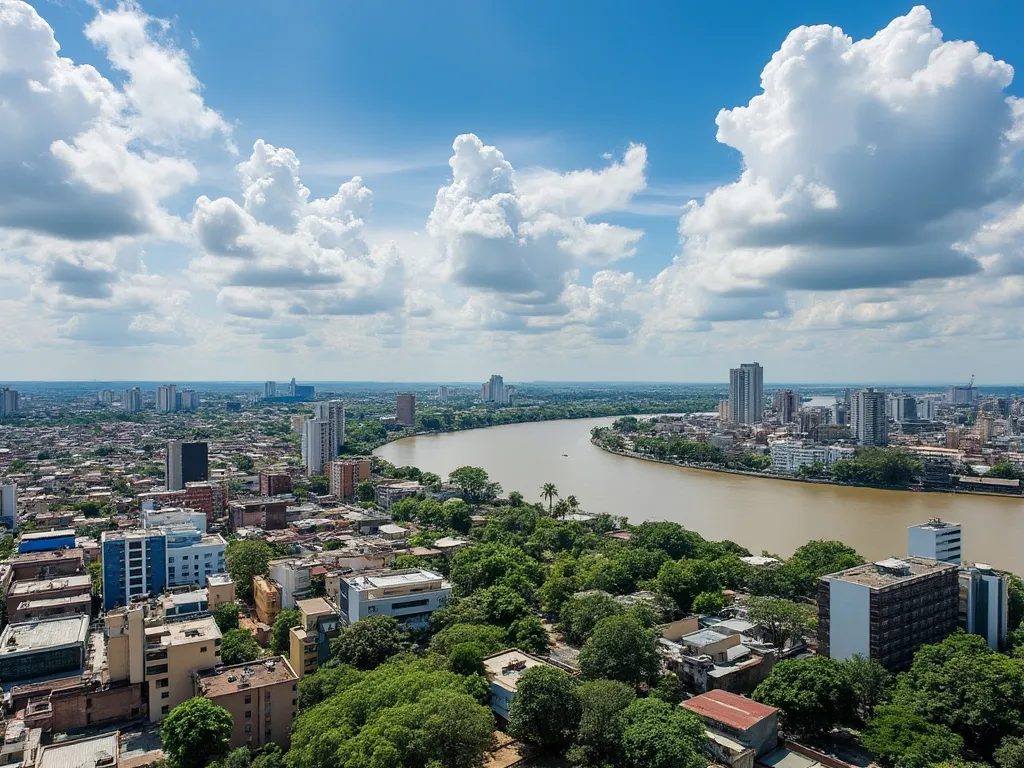 Brazzaville
Brazzaville
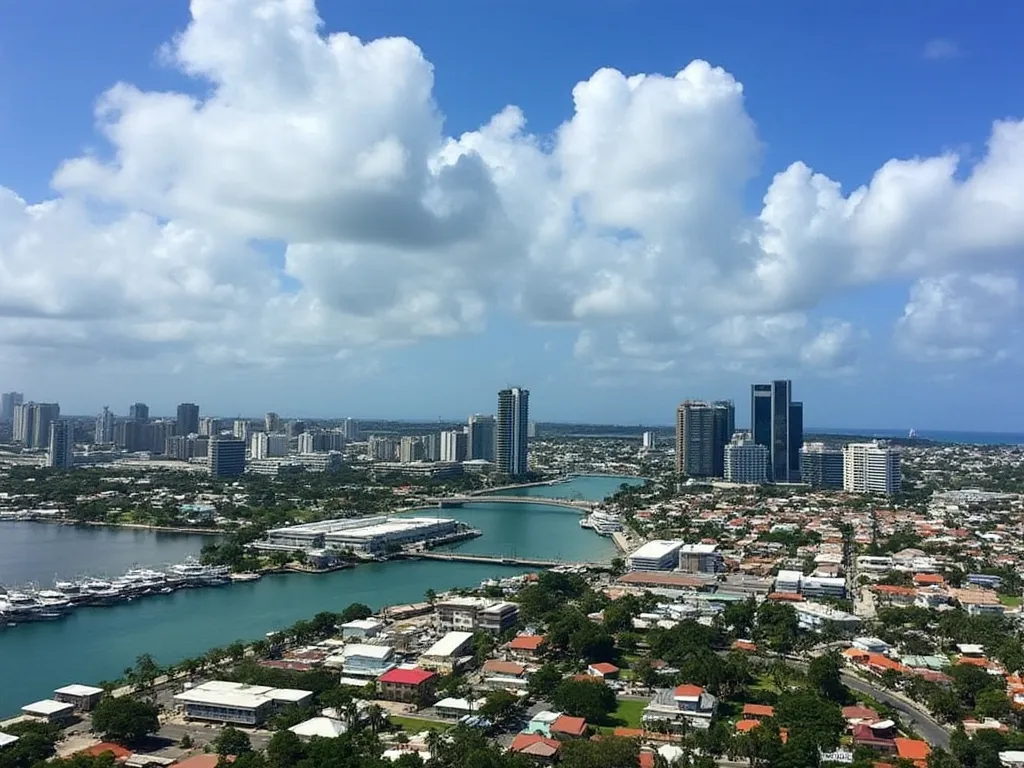 Bridgetown
Bridgetown
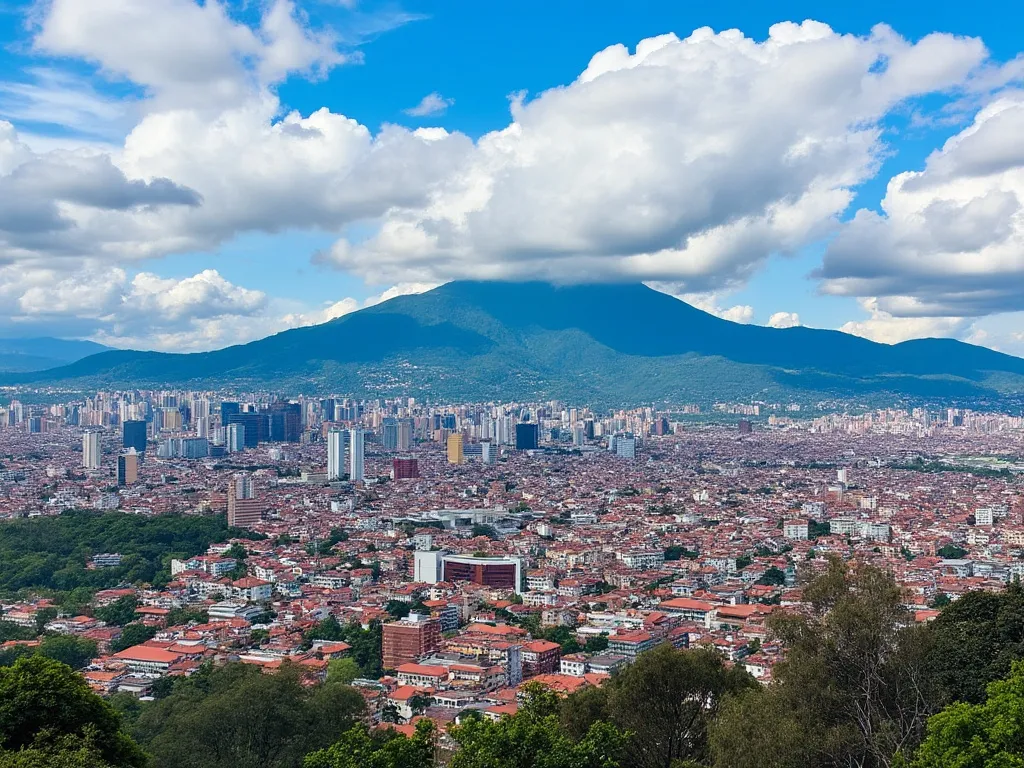 Bogotá
Bogotá
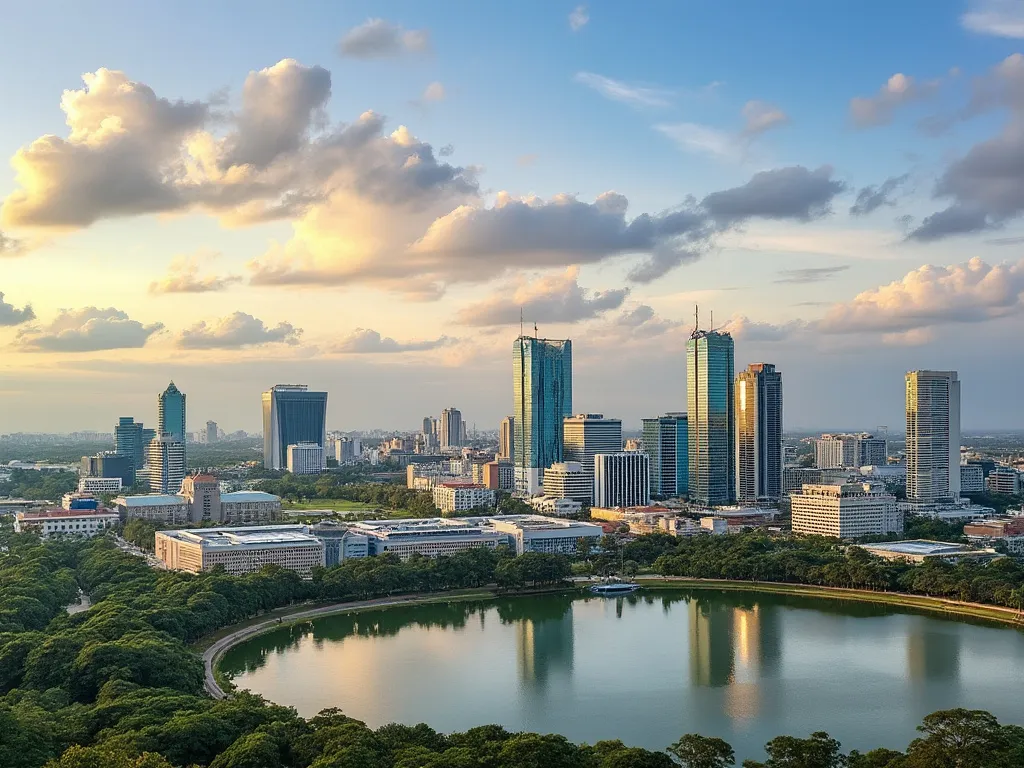 Brasília
Brasília